Game of Thrones Finale Recap: A Disappointing Ending to a Once-Great Show
Game of Thrones' series finale delivers a hasty conclusion to an increasingly rushed series, lacking the natural character growth that made early seasons so special.
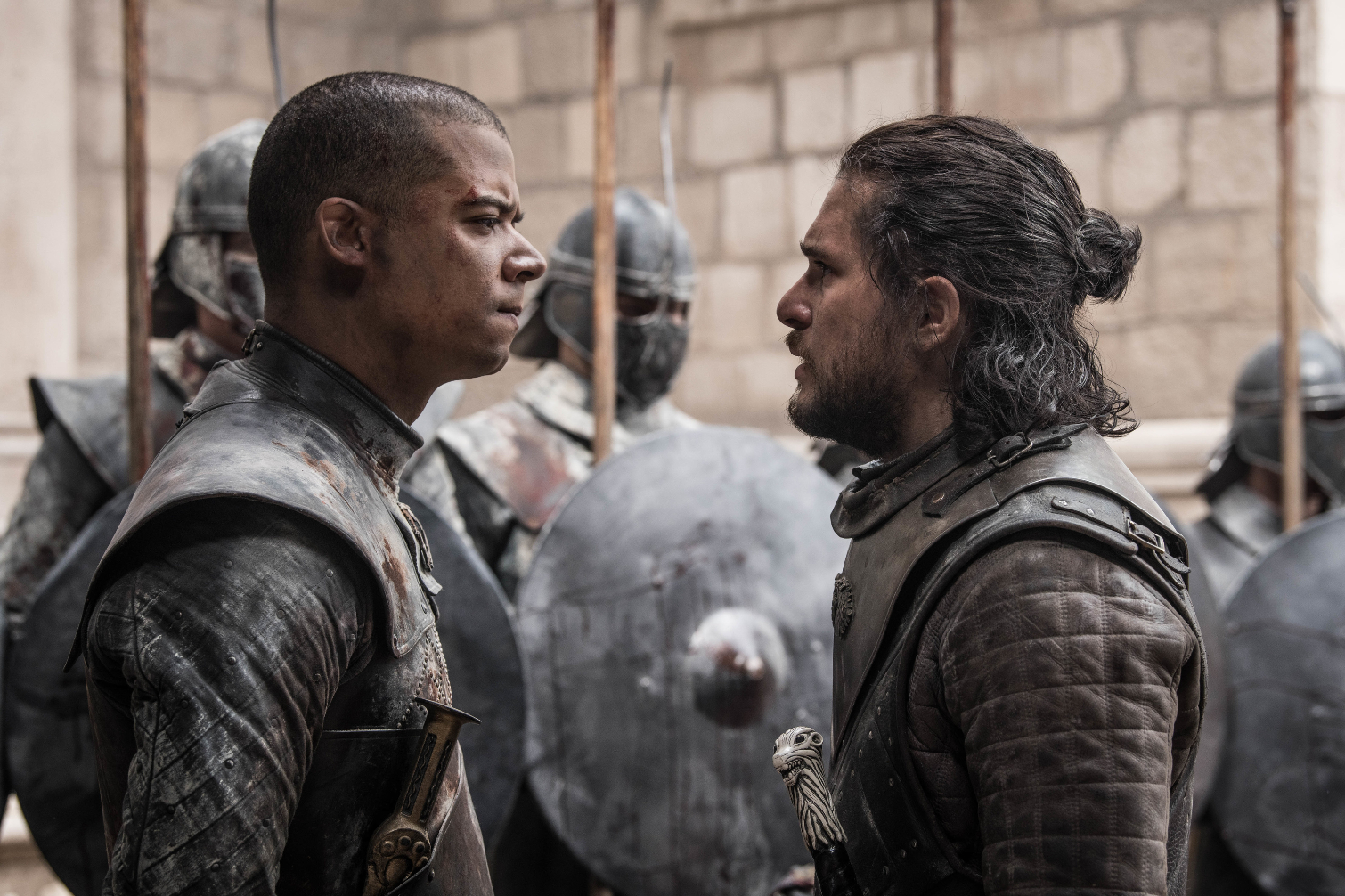
“What unites people?” a chained Tyrion asks toward the end of Game of Thrones’ final episode. “Armies? Gold? Flags?” No, of course not. As we’ve seen over the course of the past eight seasons, those things certainly don’t unite people; they cause wars. “Stories,” Tyrion answers. “There’s nothing in the world more powerful than a good story.”
After this series finale, I think it’s just as accurate to say there’s nothing in the world more disappointing than a bad one.
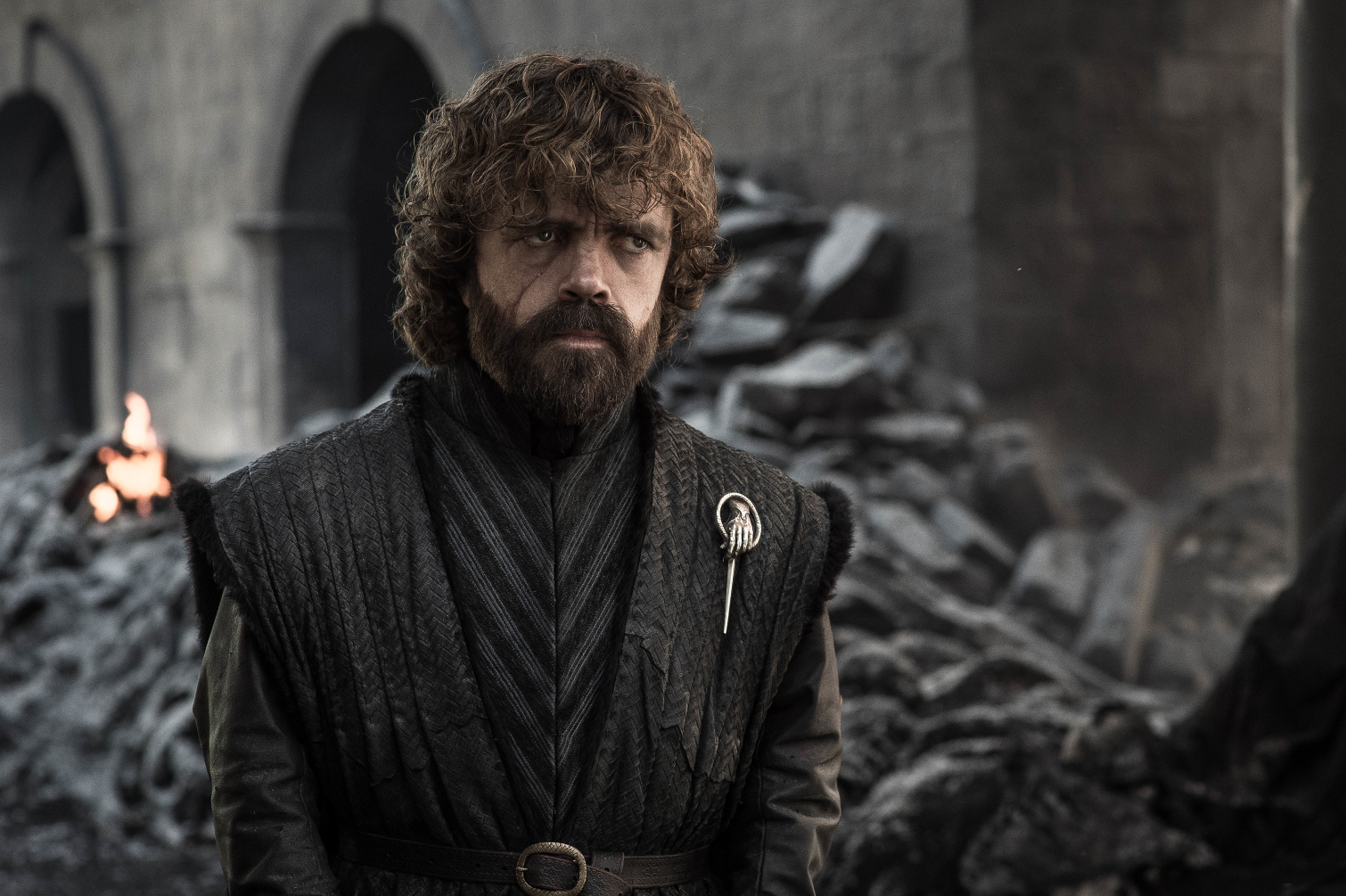
Over the show’s last three poorly paced and hastily written seasons, I’ve thought a lot about a scene from its fifth-ever episode, “The Wolf and the Lion.” Cersei sits down with Robert to talk about the threat that Daenerys and the Dothraki pose, but soon, Cersei asks Robert about the woman he loved, Lyanna Stark, for the first time over the course of their 17 years of marriage. “Seven kingdoms couldn’t fill the hole she left behind,” he says. “Was it ever possible for us?” Cersei asks. “No,” he says. “Does that make you feel better or worse?” Cersei says, “It doesn’t make me feel anything.”
With just a few words and choice facial expressions, we were shown so much about their relationship, a relationship we thought was built solely on hatred and power; it was a treat to get a peek into the vulnerability of these two headstrong, thus-far unlikeable characters. I imagine David Benioff and D.B. Weiss also had fun writing the scene. While they borrowed heavily from A Game of Thrones scribe George R.R. Martin’s source material, they added quiet moments like this one to offer more depth to the characters with whom we’d be spending quite some time.
In truth, it’s one of my favorite scenes of the whole show for its subtext and emotion. But subtext and emotion are almost nowhere to be found in Game of Thrones’ beguiling, rushed conclusion, almost impossibly written by the same two men.
A Rush to the Throne
Spoilers ahead of Game of Thrones’ series finale.
Get instant access to breaking news, the hottest reviews, great deals and helpful tips.
Throughout “The Iron Throne,” subtext is sacrificed for spectacle: We see Drogon’s wings flap behind Dany as she addresses her army as Mad Queen. Emotion is sidelined in service of hitting plot points: In a minute’s time, a prisoner has convinced every important person in Westeros, a world very much obsessed with rulers, to unanimously king the kid who barely speaks or moves. It’s as if, right after Martin whispered the planned endgame for his novels into their hungry ears, D&D played connect the dots with each story beat, not bothering to fill in the whole picture.
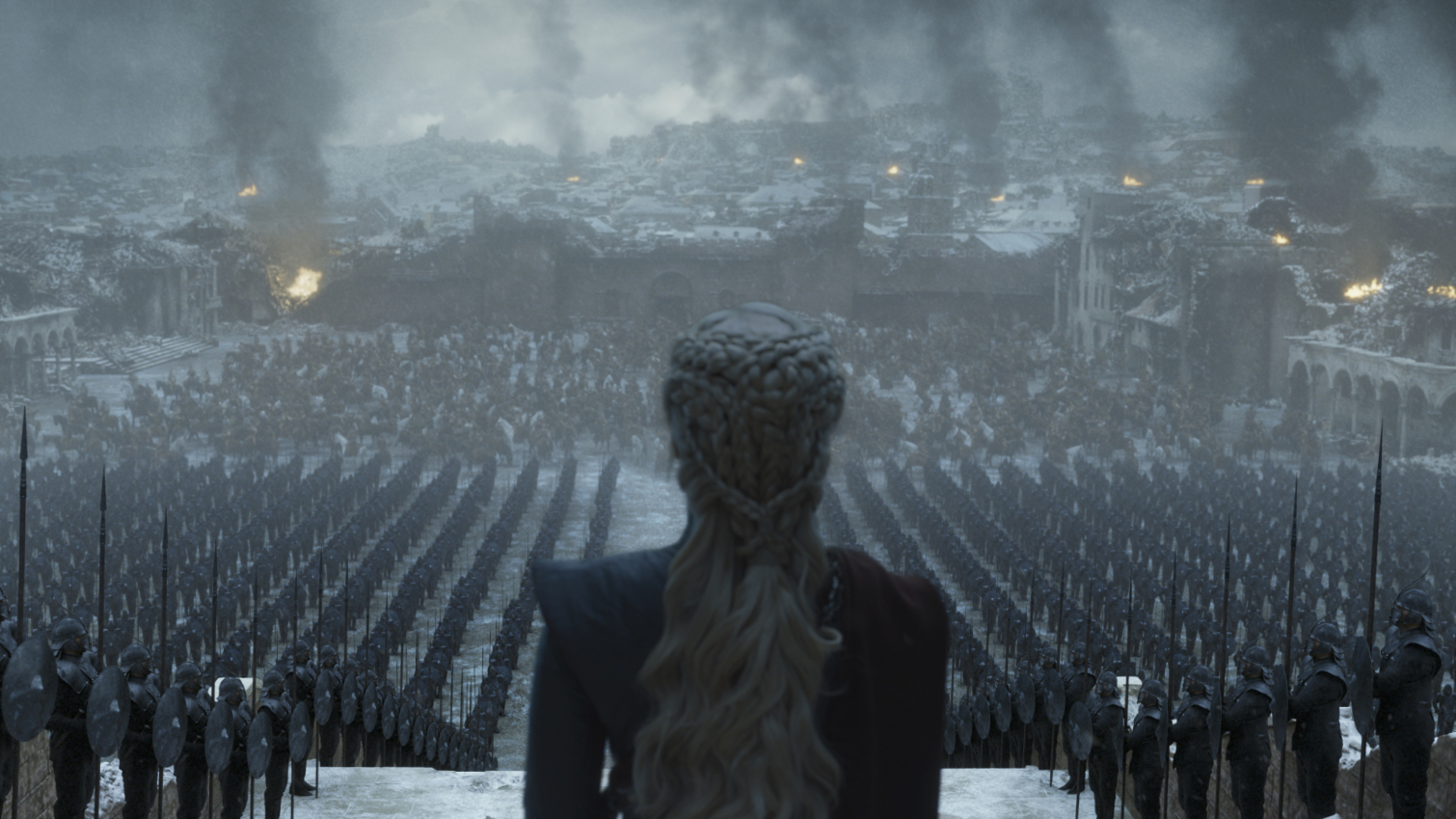
Jon killing Dany could have been a heart-wrenching twist. Drogon melting the Iron Throne could have been a fitting symbol representative of the show’s themes, but the thematic resonance of this moment loses all meaning when it’s clear the show is still very much concerned with answering the question “Who will sit on the Iron Throne?” And, yes, if we’d been shown why Bran’s story was better than, say, Jon’s, or Arya’s, or Sansa’s, he maybe could have even earned the title of king. But nothing in the show’s final seasons gave us reason to care about or understand the implications of these moments. I picture the season eight writers room looking a lot like the meeting of King Bran’s small council: full of people both unsure about and uninterested in how to move forward. In place of misguidedly prioritizing new brothels to rebuild, there’s an expensive new Star Wars trilogy to write.
MORE: How to Watch Game of Thrones Season 8, Episode 6 Online
That’s not to say this is the worst series finale in history (that honor belongs to Dexter, in my opinion). Thanks to Peter Dinklage’s acting, Tyrion’s tearful goodbye to his siblings offers some emotional closure, even if the scene exists primarily as an elbow-nudge confirming the Lannister lovers are Definitely Dead, You Guys. And you’d be colder than a wight not to feel some amount of happiness for Sansa, who insists on the north’s independence and reigns as its worthy queen.
It’s as if, right after Martin whispered the planned endgame for his novels into their hungry ears, Weiss and Benioff played connect the dots with each story beat, not bothering to fill in the whole picture.
But not only were these emotional payoffs few and far between, the long-running world-building storylines felt all but useless in the end as well. Arya’s seasons-long quest to become a Faceless (Wo)man resulted in her becoming...an explorer? Did Jon’s Targaryen heritage bombshell really matter at all? Why did the White Walkers want to kill the stories of Westeros living inside of Bran, if that really was their M.O.? Was there a narrative reason for Bran being a warg, aside from Hodor? And what about the Prince That Was Promised prophecy?
As someone who has never written an episode of television, I can only imagine how difficult it must be to conclude a series in a satisfying way, especially for the World’s Most Popular Show. But when you can find more compelling resolutions in the forums of an online thread than in the show itself, it’s hard not to question if the writers’ commitments to the characters and story were as strong as their audience’s.
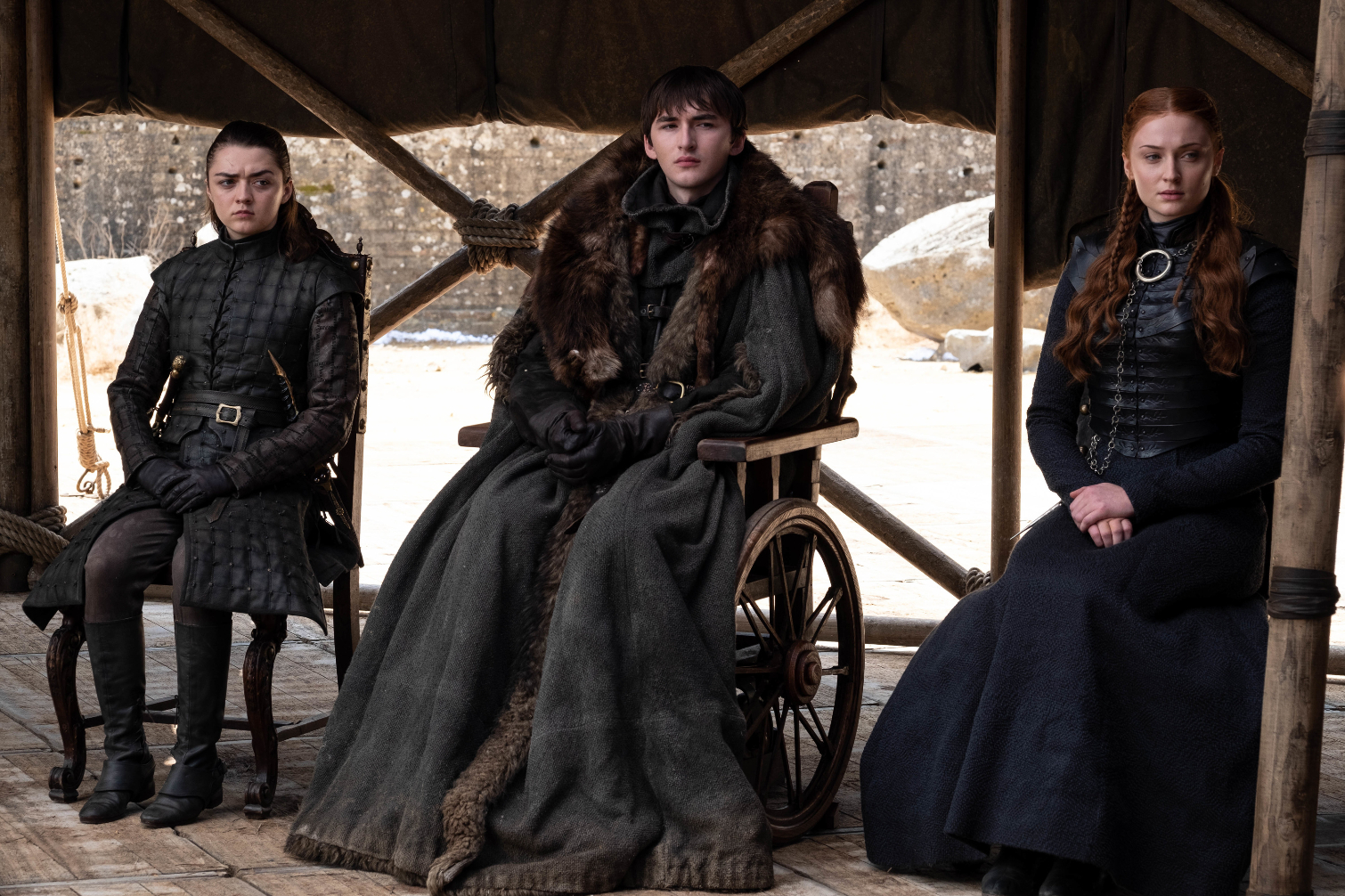
In the end, Game of Thrones posits that stories—people’s stories—are worth protecting more than anything else. When Sam plops down A Song of Ice and Fire (hey! That’s the name of the real-life book series!), Tyrion pages through the book to find his name until Sam reluctantly admits that Tyrion doesn’t appear in it. The joke, obviously, is that Tyrion played an integral part in the now-history of Westeros. It’s reminiscent of the end of Chinua Achebe’s Things Fall Apart, whose main character, an impressive man named Okonkwo who belongs to a small Nigerian tribe, is relegated to just a footnote in a colonizer’s book.
After years of showing us significant character growth, Game of Thrones became a broken show that chose to romanticize brokenness.
History is written by the winners and all that, and in this case, the winners don’t wish to include an alcoholic imp in theirs. But Tyrion’s story—and everyone else’s in Westeros—is important to us, the viewers, and A Song of Ice and Fireleads us to believe that’s the reason we’ve watched this show for eight years: the characters’ stories. And maybe that could have been earned seasons ago, but not now.
Bottom line
After years of showing us significant character growth, Game of Thrones became a broken show that chose to romanticize brokenness. In “The Last of the Starks“, Sansa tells the Hound, “Without Littlefinger and Ramsay and the rest, I would have stayed a Little Bird all my life.” But her strength wasn’t given to her by rapists and abusers; she was already strong, which allowed her to overcome them. Brienne, one of the best fighters and most loyal people in the seven kingdoms, is undone after a one-night tryst with Jaime and is last seen updating his “Westerosipedia” page, still visibly broken up about his choice to leave her to go to Cersei.
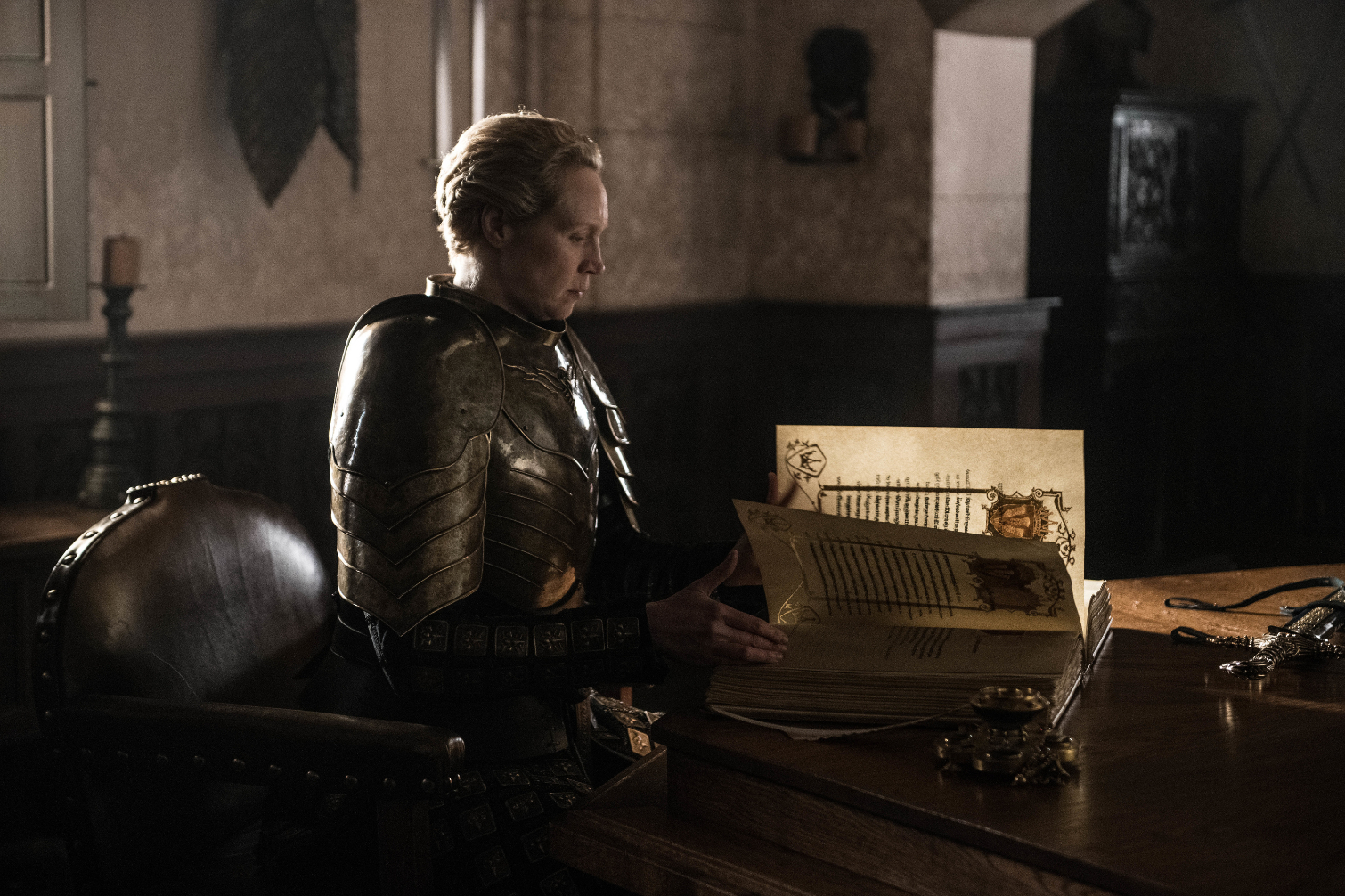
Despite winning the final war, Dany murders hundreds of innocent people without a second thought, and that decision is given neither the buildup nor subsequent unpacking it needed to make sense, so instead she winds up looking like just a “crazy” Targaryen. Meanwhile, Aegon Targaryen, the true heir to the throne, is unceremoniously sent back to the Night’s Watch as Jon Show, the bastard. And Bran, newly anointed king of the six kingdoms, the most powerful person in Westeros, is literally dubbed Bran the Broken.
These characters’ endings may be worthy of Sam’s A Song of Ice and Fire, but they’re not given the emotional breadth needed to land them in the history of great television finales.
But, hey, at least Ghost finally got some pets, right?
Wondering what to do with that HBO Now subscription? Here are 10 reasons to keep HBO now that Game of Thrones is over.
Daniel Toy is a Tom's Guide contributing writer who covers television, film and all things pop culture. When he's not arguing about the best and worst series finales of all time, he's flipping through his LCBS's dollar bin or chugging through his Switch backlog. His other writing and editing credits include BuzzFeed, Marvel, Scholastic, Callisto, Breadcrumbs and Syndicated, and he strongly believes The Truth Is, indeed, Out There.
 Club Benefits
Club Benefits





